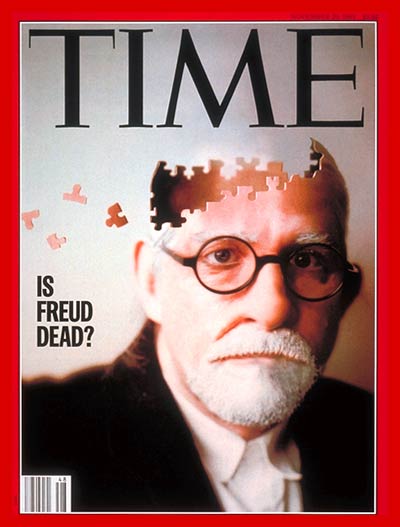 For some Christians, the prospect of broad or far-reaching psychic change raises so many and such fearful questions and concerns that it remains a step untaken, which is a pity. But for those who--while acknowledging that modern psychology may have a different anthropology or moral philosophy than Christianity does--nonetheless can see their way towards benefiting from what is good in modern psychology, then they open themselves up to a lot of potential healing, which can only be regarded as a God-given gift.
For some Christians, the prospect of broad or far-reaching psychic change raises so many and such fearful questions and concerns that it remains a step untaken, which is a pity. But for those who--while acknowledging that modern psychology may have a different anthropology or moral philosophy than Christianity does--nonetheless can see their way towards benefiting from what is good in modern psychology, then they open themselves up to a lot of potential healing, which can only be regarded as a God-given gift.Modern psychology has of course developed greatly since Freud's death in London in 1939, with new schools and "techniques" developing since the 1950s, leading many people, from the 1960s until quite recently, ready to proclaim the death of psychoanalysis. But I find it fascinating how there seems to be increasing evidence of the efficacy of psychoanalysis over more modern forms of therapy, as noted in this fascinating article. As the author notes--rightly, in my view--the chief advantage and long-term benefit of psychoanalysis is that it "may restructure the personality in a lasting way, rather than simply helping people manage their moods."
That notion of a re-structured mind comes out in a very interesting book written by the analyst Fred Busch, Creating a Psychoanalytic Mind: A psychoanalytic method and theory (Routledge, 2013). Busch writes in a low-key manner with a refreshing lack of ideological rigidity, jargon, or hubris. He intercalates passages from well-known literary works with short case-studies from his own practice to illustrate what he means. This is a rewarding book that pays re-reading. As the publisher tells us about it:
Bringing a fresh contemporary Freudian view to a number of current issues in psychoanalysis, this book is about a psychoanalytic method that has been evolved by Fred Busch over the past 40 years called Creating a Psychoanalytic Mind. It is based on the essential curative process basic to most psychoanalytic theories - the need for a shift in the patient's relationship with their own mind. Busch shows that with the development of a psychoanalytic mind the patient can acquire the capacity to shift the inevitability of action to the possibility of reflection.
Creating a Psychoanalytic Mind is derived from an increasing clarification of how the mind works that has led to certain paradigm changes in the psychoanalytic method. While the methods of understanding the human condition have evolved since Freud, the means of bringing this understanding to patients in a way that is meaningful have not always followed. Throughout, Fred Busch illustrates that while the analyst's expertise is crucial to the process, the analyst's stance, rather than mainly being an expert in the content of the patient's mind, is primarily one of helping the patient to find his own mind.
Creating a Psychoanalytic Mind will appeal to psychoanalysts and psychotherapists interested in learning a theory and technique where psychoanalytic meaning and meaningfulness are integrated. It will enable professionals to work differently and more successfully with their patients.In later installments, I hope to give further thoughts on two other books I'm making my way through now: Donald Spence's fascinating if controverted Narrative Truth and Historical Truth: Meaning and Interpretation in Psychoanalysis,which, I think, has potential for Christians struggling to think through our collective ecclesial memories of the past, especially traumatic memories (e.g., Greek Christians and the Fourth Crusade).
The other book is a new collection I have started: Earl D. Bland and Brad D. Strawn, eds., Christianity & Psychoanalysis: A New Conversation (IVP Academic, 2014). I shall have more to say about it anon.

No comments:
Post a Comment
Anonymous comments are never approved. Use your real name and say something intelligent.
Note: Only a member of this blog may post a comment.